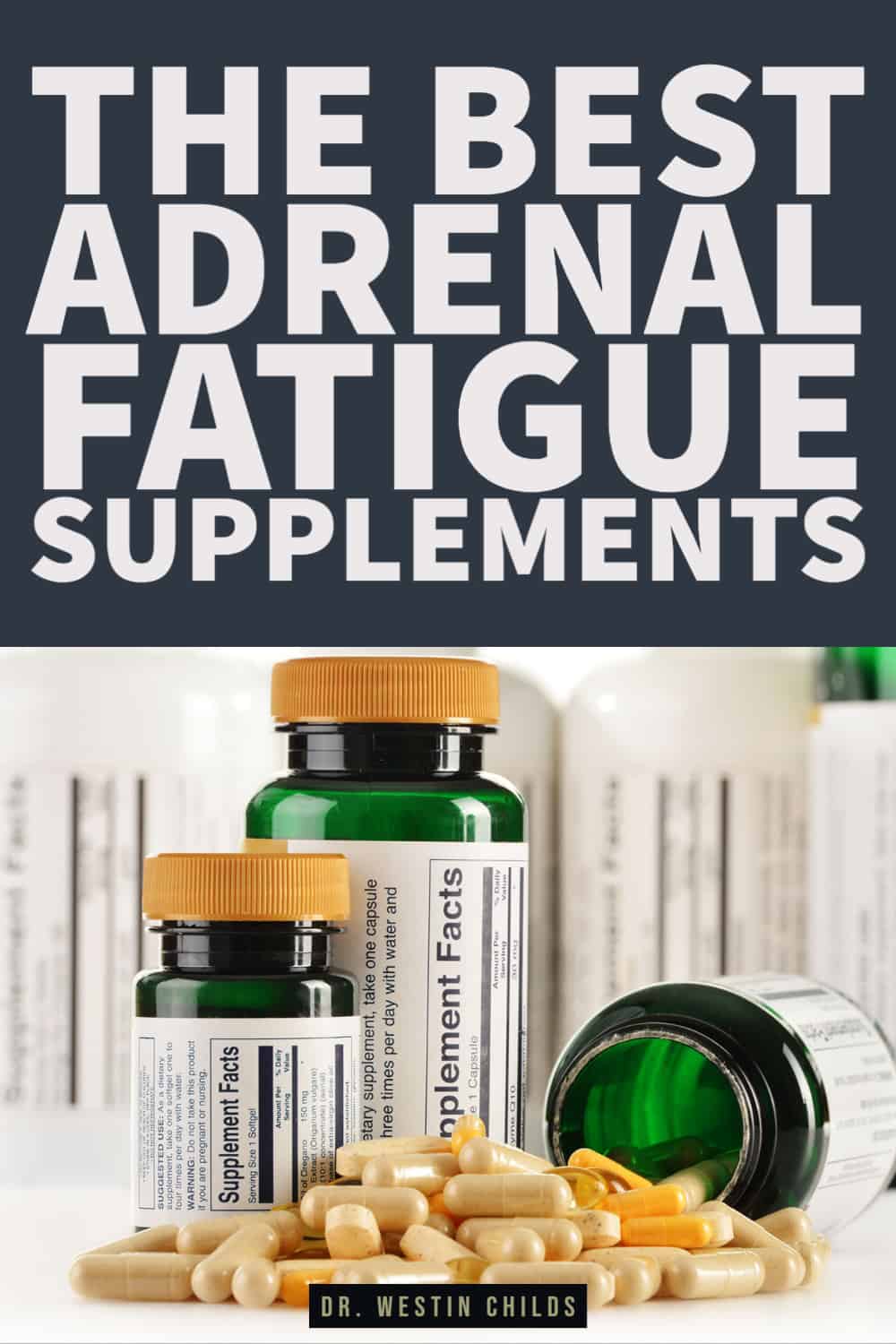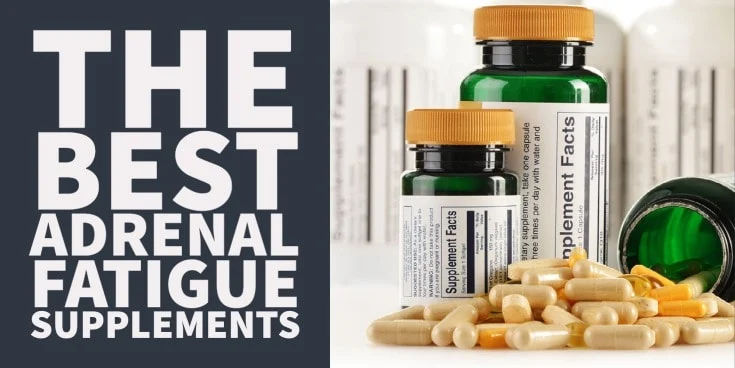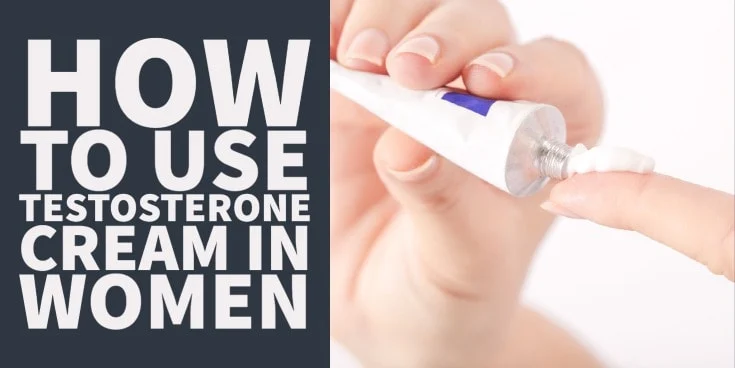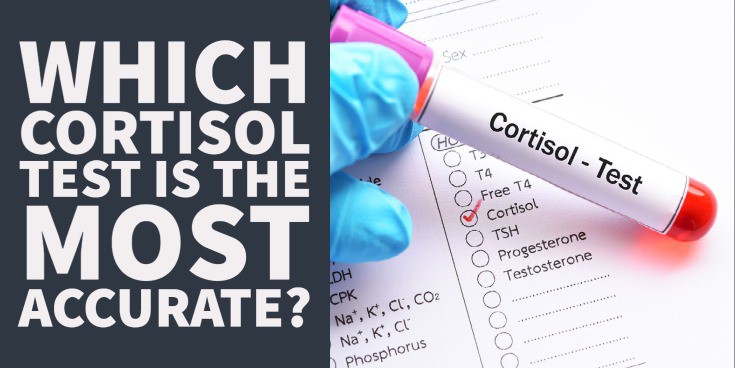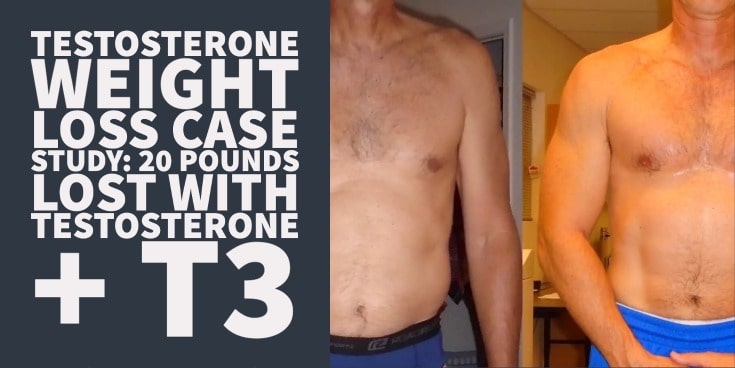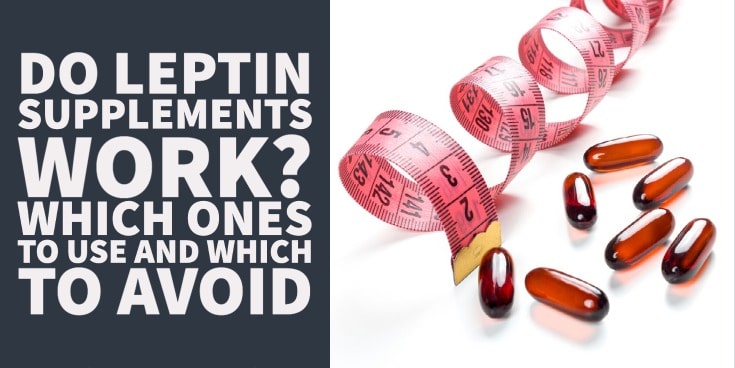Fatigue, exhaustion, and low energy…
These symptoms are incredibly common nowadays and they all may be pointing to a specific hormone imbalance commonly referred to as adrenal fatigue.
But instead of focusing on the word adrenal fatigue, it’s better to focus on the hormone cortisol and how you can directly impact this very important stress hormone.
Once you understand what is happening to your cortisol level you can target your therapies and supplements so you can finally reclaim your energy.
In this guide, I will walk you through how to treat your fatigue with the best adrenal fatigue supplements:
Do you have Cortisol or Adrenal Issues?
We need to talk about what causes low energy and then we can talk about how to fix it.
Low energy is really a subjective symptom that is a result of low energy production in your body.
The majority of energy produced in your body comes from special organelles inside your cells known as mitochondria.
These mitochondria are responsible for the production of a compound known as ATP (adenosine triphosphate) and ATP is considered the “energy currency” for your body.
The amount of ATP that you produce and the efficiency of your mitochondria really help to define your subjective sense of energy (1).
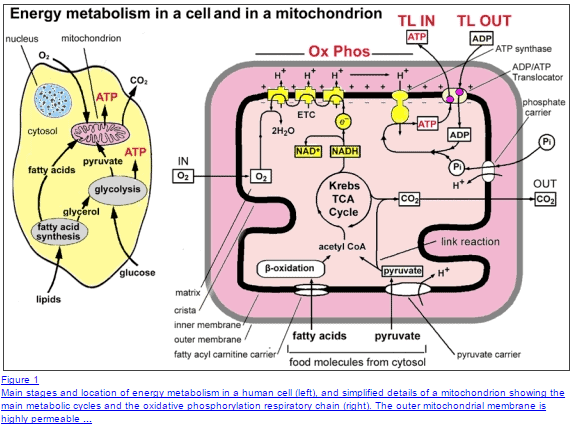
What’s even more interesting is that you can directly (and indirectly) impact ATP production and increase the efficiency of energy production in your body.
In addition to being involved in energy production, ATP production is also involved in heat production and metabolism (2).
This may explain why so many people suffering from adrenal problems and low energy also present with weight gain as one of their main symptoms (3).
Why?
Because if your energy production in your body is lower than normal you will have less heat production which will result in a lower-than-normal body temperature and a slower-than-normal metabolism.

Make sense?
It’s helpful to think of your body as a machine.
As long as you are alive your body will be producing energy, but you need to think in terms of efficiency.
Let’s say that “normal” is considered to be 100% efficient.
If you have hormone imbalances, and low/high cortisol levels this machine may be functioning at 70% of normal.

This results in a 30% deficiency in energy production that may be the result of nutrient deficiencies, hormone imbalances, etc.
Treating adrenal fatigue is designed to increase the efficiency of this machine back up to 100%, so you have normal energy levels, a normal metabolism, and you finally start to feel yourself.
But this low energy production extends beyond just weight gain, in fact, low energy production in your body may result in many different symptoms which manifest in various ways.
Symptoms that suggest you have adrenal problems and that you may need to get your cortisol level evaluated:
- Constant fatigue throughout the day (classically with a 2-3 pm “crash”)
- The sensation of being “wired but tired”, especially at night
- The feeling of getting a “second wind” at night, especially around 9-10 pm
- Weight gain and/or weight loss resistance
- Other hormonal problems in the body, especially hypothyroidism
- Changes in mood including depression, anxiety, and/or irritability
- Intense carbohydrate or sugar cravings
- Reliance upon stimulants (like caffeine) with frequent use throughout the day for “energy”
- The sensation of more energy after eating a carbohydrate-rich (or sugar-rich) meal
- Cravings for salty foods
These symptoms all indicate an issue with “adrenal problems” or with energy production in your body.
The good news is that if you suffer from these symptoms (or have a known diagnosis of adrenal fatigue) then you can use the following therapies to naturally increase your energy levels and improve energy production.
The Most Effective Adrenal Fatigue Supplements
In order to treat your adrenal and low energy you really need to target your supplements to your body.
That means looking at your cortisol level.
I won’t go into significant detail here, because I’ve elaborated on the best cortisol test in this post, but it’s worth a quick mention.
First, you need to understand that your cortisol level has a big impact on your subjective sense of energy in your body.
Second, you need to realize that certain supplements are better at lowering your cortisol and others are better at raising it.
Recall that high cortisol and low cortisol present with similar symptoms (those listed above), but you still need to know what is going on in your cortisol in order to target treatment.
There are a lot of different ways to measure cortisol in your body, but the best is definitely the urinary option with multiple tests throughout the day.
This doesn’t mean your serum cortisol is not helpful though, quite the contrary.
One problem with urinary testing is that it can be expensive, whereas serum cortisol is cheap and is covered by insurance.
This makes serum cortisol a good place to start.
If you check your serum cortisol level look for these ranges:
- Low serum cortisol: Less than 8 mcg/dL
- Normal serum cortisol: 14-16 mcg/dL
- High serum cortisol: Greater than 18 mcg/dL

Using these ranges can give you an idea of where to start with your supplementation (though don’t confuse this as the best or only way to test cortisol levels).
Below you will find a list of all of the adrenal supplements I use targeted at cortisol levels.
These supplements have been shown to be efficacious through literary studies and I have personally used them.
After we go through the entire list I will go through several of them individually to help determine which ones might be the best for you.
Treatment for Low Cortisol:
- Adrenal glandulars: These tend to work best for patients with very low cortisol levels, they also tend to provide an immediate boost to energy levels. Using glandulars in combination with other supplements listed below is very effective for low cortisol levels. It should be used for 6 + months.
- Adrenal adaptogens: Adaptogens can actually help to lower cortisol levels as well, but should at least be considered in the treatment. There are many types of adaptogens but I find that blends of multiple adaptogens tend to work best. These adaptogens can be combined with glandulars as well for more benefit. It should be used for 3+ months at least.
- CoQ10: This coenzyme is involved in proper mitochondrial energy production and can help increase energy levels. Because energy levels are often low in adrenal-related issues, mitochondrial boosters are particularly effective. Use 2 capsules (240mg) per day for several months.
- Alpha Lipoic acid: ALA helps increase mitochondrial energy production, and acts as a powerful antioxidant and an anti-inflammatory agent. ALA can also help with weight loss due to its effects on insulin.
- Vitamin B6: Vitamin B6 is used in several pathways in the creation of adrenal hormones and is a nutrient that many patients are deficient in. Taking higher doses of B6 during the acute phase of treatment may be necessary for short periods of time.
- DHEA: DHEA is the precursor to testosterone and other estrogen metabolites. With low cortisol and low adrenal hormone production, supplementing with hormone precursors may be of benefit. Start with a low dose every 2-3 days and increase to daily as tolerated. Be careful because DHEA can turn into androgens or estrogens in high doses.
- Pregnenolone: Pregnenolone is another hormone precursor and can be helpful if used along with DHEA. Watch out for acne as a side effect and like DHEA, start low and go slow. The use of these hormones may be necessary for 3+ months.
Treatment for High Cortisol:
- Phosphatidylserine: Phosphatidylserine has been shown to reduce cortisol levels if taken in doses up to 600mg per day. Use 4-6 capsules at night (each capsule is 100mg) and recheck cortisol levels in 2-3 months.
- Ashwagandha: Ashwagandha is an adaptogen that can actually help to lower cortisol levels, boost libido, and may help with weight loss. You can read more about ashwagandha here.
- Melatonin: Melatonin has been shown to reduce cortisol levels (4) and may actually help improve your sleep at night. Even if you are sleeping well, melatonin can still help reduce cortisol levels and should be considered. As far as dosing is concerned, start with a very low dose (0.1 mg to 0.5mg).
#1. Adrenal Adaptogens (Ashwagandha)
Probably one of the best and most important supplements used to treat adrenal fatigue and cortisol problems is adrenal adaptogens.
These are supplements that really can be defined by their ability to “normalize” or help “balance” cortisol levels.
Studies have shown (5) that these adaptogens can actually help increase cortisol levels when they are low and conversely that they can help lower cortisol levels when they are high.
This makes adaptogens a critical component for anyone dealing with adrenal fatigue.
I have found that of the adrenal adaptogens, ashwagandha seems to stand above the rest both in terms of its clinical utility and the literary studies that support its use.
Ashwagandha has a number of beneficial side effects that extend beyond its ability to increase energy levels and balance cortisol levels including:
- Increases muscle mass (6) (thus helping with weight loss)
- Increases energy levels (also increases exercise capacity and allows you to recover more quickly)
- Improves thyroid function (7) and helps increase both T4 and T3 levels)
- Helps manage stress (increases your natural tolerance to stressful situations)
- Improves sleeping patterns (8)

The added benefits of helping patients lose weight and boost thyroid function make this supplement one of my top choices.
Many patients have hypothyroidism whether they realize it or not (especially since thyroid function decreases as you gain weight), so this supplement can often treat many problems you didn’t even know were present.
If you decide to use Ashwagandha make sure you use a high enough dose from a high-quality brand:
How to Supplement with Ashwagandha
- Dosage varies from 500-2,000 mg per day depending on tolerance and degree of symptoms
- Length of treatment varies by condition, for adrenal fatigue supplementation as long as 6+ months may be required.
My Recommended Brand and Product: Get ashwagandha here.
#2. Adrenal Glandulars (Usually combined with Adaptogens)
Next on the list is the use of adrenal glandulars.
These extracts have been used for a long time and definitely work, but the exact mechanism behind why they work is less understood.
Some studies have shown that these extracts provide cellular benefits such as a reduction in inflammation (9), while other people insist that they contain active hormones that provide cellular support.
Regardless of how they work, we definitely know that they do work (for most people).
Glandulars, as long as they are sourced correctly, can be a very effective addition (or used as monotherapy) when treating adrenal and cortisol problems.
In my experience, adrenal glandulars seem to provide the most benefit to patients who are suffering from EXTREME fatigue and those with very low cortisol levels.
Glandulars can be used safely, but for best results should be used no more than 6 months at any given time.
Adrenal glandulars seem to provide the quickest boost to energy levels with some patients noticing an increase in energy in as little as several days after starting supplementation.
If you decide to use adrenal glandulars make sure you get a high-quality product:
How to Supplement with adrenal glandulars
- 1-2 Tablets per day if using Glandulars (preferably taken in the am and at noon)
- If you get too jittery using these supplements then cut back to 1 or even 1/2 tablet each day as needed
- Treatment may be required for up to 6 months
For severe adrenal fatigue, you should use a combination of adrenal glandulars + adrenal adaptogens (ARC II above):
#3. Alpha Lipoic Acid
Remember that adrenal and hormone problems are a manifestation of other problems in the body.
Chronic stress, low-grade inflammation, and poor nutrition all contribute to reduced cellular energy production and hormone imbalances.
Because multiple conditions contribute to your symptoms you may need to use supplements designed to treat these other issues for the best results.
Alpha lipoic acid helps improve energy levels and treat adrenal problems through multiple mechanisms:
- Increases insulin sensitivity (10) (improving insulin resistance)
- Directly increases mitochondrial enzyme production (11)
- Acts as an anti-inflammatory agent (12) to help reduce chronic low-grade inflammation
- Boosts the effectiveness of other supplements and medications

ALA also has shown benefits in helping patients lose weight.
If you are having issues with weight loss or weight loss resistance then adding ALA to your current adrenal regimen may help with this problem.
Alpha lipoic acid can be safely added to existing adrenal supplements and should be used specifically in people who have issues with weight loss, chronic inflammation, and insulin resistance in addition to low energy or fatigue.
How to Supplement with Alpha Lipoic Acid
- Take up to 1,800mg per day (depending on tolerance)
- Start titration at 600mg per day and increase as tolerated
- Length of treatment may vary depending on the condition but should last at least 3 months
#4. Phosphatidylserine
Phosphatidylserine is particularly effective for those suffering from high serum cortisol levels, or those with cortisol spikes throughout the day.
Unfortunately, there are very few effective treatments for those suffering from high cortisol (compared to the therapies available for low cortisol).
Phosphatidylserine has been shown to attenuate (meaning decrease) cortisol levels (13).
This is especially helpful for patients who exercise quite frequently.
Exercise, whether you realize it or not, does cause stress to the body which can result in an increase in cortisol.
Because so many people deal with weight issues, and because the conventional approach is simply to exercise more, many people consequently now have issues with cortisol because of over-exercising.
If you are exercising 4-5x per week (especially if this exercise is high intensity) you may be paradoxically causing more fatigue to your body.
In these instances, phosphatidylserine may be necessary (in addition to reducing the amount that you exercise).
I have seen many cases of patients actually losing weight as they cut back on exercise due to this effect.
Phosphatidylserine should also be seriously considered in those who suffer from a racing mind, or issues with calming themselves down in the evening.
How to Supplement with Phosphatidylserine
- Use up to 600mg per day, taken at night.
#5. Melatonin
You’re probably aware that melatonin can help improve sleeping patterns, but you may not be aware that it can directly improve cortisol levels as well.
Melatonin appears to have a direct action on adrenal tissue (14), meaning that melatonin helps regulate cortisol and other hormones.
This relationship probably helps explain why cortisol levels spike around 8 am considering that melatonin levels increase (or should increase) as you sleep.
What we learn from this is that it is very important to have a normal circadian rhythm and that various factors that interfere with this relationship can impact hormones and energy levels downstream.
Certain hormones (in fact most hormones) cycle normally throughout the day.
For instance, cortisol levels peak at 8 am and then slowly decrease throughout the waking hours of the day.
Compare that to melatonin, which peaks in the evening.
What we know is that if you interfere with this normal cycle there are serious consequences.
This may help explain why people who work night shifts have a higher risk of mortality (death) and lower growth hormone levels compared to people who work in the daytime.
Melatonin can be very beneficial in the following instances:
- Postmenopausal women (melatonin has been shown to increase cortisol in these women (15))
- Those under heavy stress and difficulty sleeping at night (stress reduces melatonin secretion in the evening (16) which lowers cortisol production in the morning)
- Those who suffer from depression (17)
- Those with sleeping problems or circadian rhythm dysfunction
- Those people working evening jobs or who have an abnormal wake/sleep cycle (those with “reversed” sleeping schedules)
- Those who travel frequently (especially into different time zones)
- Those who do not respond to adrenal glandulars or adrenal adaptogens
How to Supplement with Melatonin
- Start with 0.1 to 0.5mg per day
- Take at night 30-60 minutes prior to planned bedtime (can be combined with phosphatidylserine for more benefit)
Back to you
The bottom line is that you CAN feel better and can have more energy, but this requires a targeted approach with the right supplements.
It all starts by getting your serum cortisol levels checked (you can use advanced tests like urinary testing after you get your serum cortisol checked) in addition to other hormones such as insulin and leptin.
Once you know what is happening in your body you can then target your supplements directly to your cortisol level and to the other hormone imbalances that may be present as a result of cortisol dysregulation.
Also, remember that treating your adrenals takes TIME – on the order of 6+ months in most cases.
Take it slow, be consistent, and make sure to also add in lifestyle changes.
Now it’s your turn:
Are you suffering from adrenal fatigue?
Have supplements helped you?
Why or why not?
Leave your comment below!
Scientific References
#1. https://www.ncbi.nlm.nih.gov/pmc/articles/PMC2680051/
#2. https://www.ncbi.nlm.nih.gov/pubmed/23264395
#3. https://www.ncbi.nlm.nih.gov/pmc/articles/PMC5097076/
#4. https://www.ncbi.nlm.nih.gov/pubmed/19301769
#5. https://www.ncbi.nlm.nih.gov/pmc/articles/PMC3573577/
#6. https://www.ncbi.nlm.nih.gov/pmc/articles/PMC4658772/
#7. https://www.ncbi.nlm.nih.gov/pmc/articles/PMC4296437/
#8. https://www.ncbi.nlm.nih.gov/pmc/articles/PMC3040882/
#9. https://www.ncbi.nlm.nih.gov/pubmed/14690452
#10. https://www.ncbi.nlm.nih.gov/pubmed/21666939
#11. https://www.ncbi.nlm.nih.gov/pmc/articles/PMC2734271/
#12. https://www.ncbi.nlm.nih.gov/pmc/articles/PMC3821094/
#13. https://www.ncbi.nlm.nih.gov/pubmed/16869708
#14. https://www.ncbi.nlm.nih.gov/pubmed/19301769
#15. https://www.ncbi.nlm.nih.gov/pubmed/9181519
#16. https://www.ncbi.nlm.nih.gov/pubmed/1609019
#17. https://www.ncbi.nlm.nih.gov/pubmed/2994141
#18. https://www.ncbi.nlm.nih.gov/pmc/articles/PMC3632337/
#19. https://www.ncbi.nlm.nih.gov/pmc/articles/PMC3520819/
#20. https://www.ncbi.nlm.nih.gov/pmc/articles/PMC3050109/
